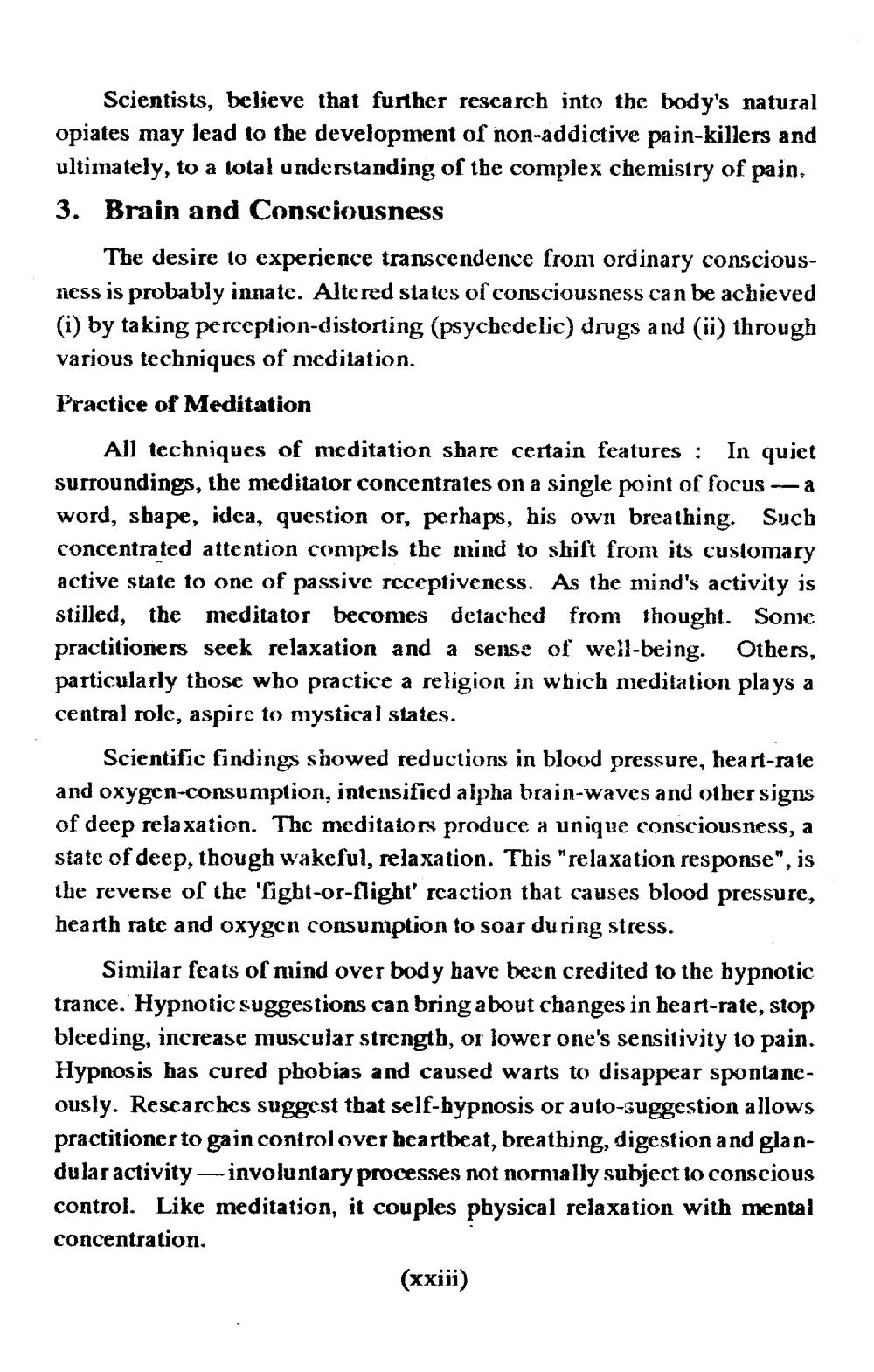________________
Scientists, believe that further research into the body's natural opiates may lead to the development of non-addictive pain-killers and ultimately, to a total understanding of the complex chemistry of pain. 3. Brain and Consciousness
The desire to experience transcendence from ordinary consciousness is probably innate. Altered states of consciousness can be achieved (i) by taking perception-distorting (psychedelic) drugs and (ii) through various techniques of meditation.
Practice of Meditation
a
All techniques of meditation share certain features : In quiet surroundings, the meditator concentrates on a single point of focus word, shape, idea, question or, perhaps, his own breathing. Such concentrated attention compels the mind to shift from its customary active state to one of passive receptiveness. As the mind's activity is stilled, the meditator becomes detached from thought. Some practitioners seek relaxation and a sense of well-being. Others, particularly those who practice a religion in which meditation plays a central role, aspire to mystical states.
Scientific findings showed reductions in blood pressure, heart-rate and oxygen-consumption, intensified alpha brain-waves and other signs of deep relaxation. The meditators produce a unique consciousness, a state of deep, though wakeful, relaxation. This "relaxation response", is the reverse of the 'fight-or-flight' reaction that causes blood pressure, hearth rate and oxygen consumption to soar during stress.
Similar feats of mind over body have been credited to the hypnotic trance. Hypnotic suggestions can bring about changes in heart-rate, stop bleeding, increase muscular strength, or lower one's sensitivity to pain. Hypnosis has cured phobias and caused warts to disappear spontaneously. Researches suggest that self-hypnosis or auto-suggestion allows practitioner to gain control over heartbeat, breathing, digestion and glandular activity-involuntary processes not normally subject to conscious control. Like meditation, it couples physical relaxation with mental concentration.
(xxiii)




